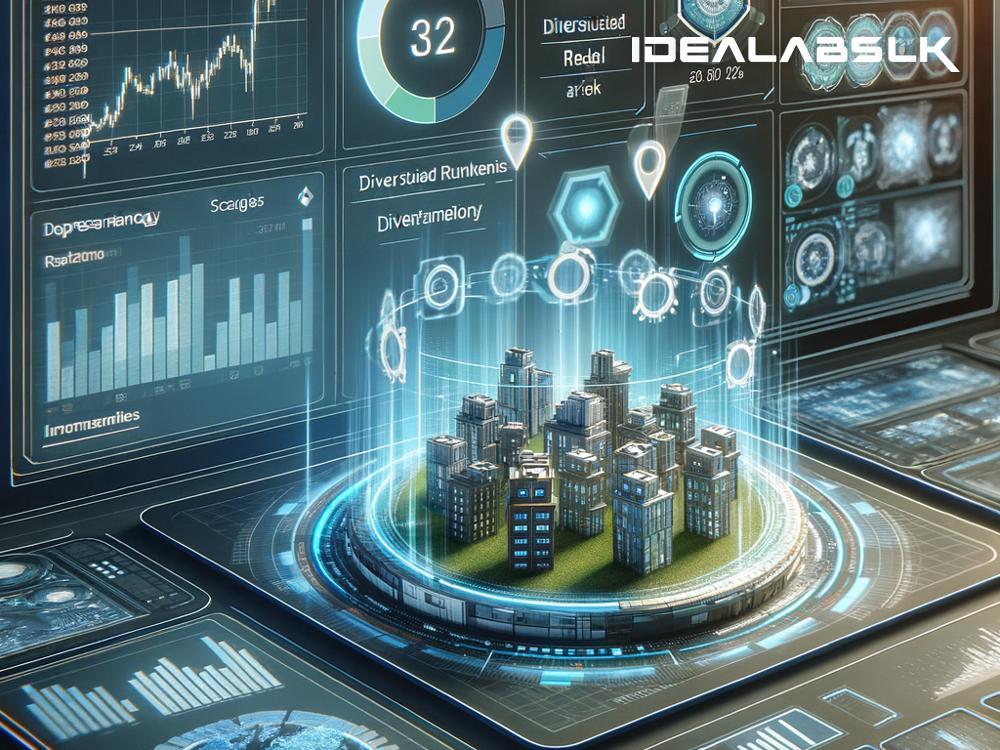How Blockchain and AI Can Lower the Risks in Real Estate Investment
Real estate investment sounds like a pretty solid way to grow your money, right? You buy property, wait a while, and sell it for more than you paid. Simple! Well, if only it were that straightforward. Like any investment, real estate comes with its fair share of risks. The good news? Recent advances in technology, specifically blockchain and Artificial Intelligence (AI), are changing the game, making it safer to invest in property.
Let's break this down.
Blockchain: The Trust Builder
First up, blockchain. You've probably heard about it in the context of cryptocurrencies like Bitcoin. But it's much more than that. At its core, blockchain is a system for recording information in a way that makes it difficult to cheat, hack, or change. It's a digital ledger that's secure, transparent, and decentralized.
In real estate, one big headache is the sheer amount of paperwork and the risk of fraud. Transactions involve heaps of documents, all of which must be verified and trusted. Here's where blockchain steps in. It can securely store property records, titles, transactions - essentially everything - in an unchangeable form. This dramatically reduces the possibility of fraud.
Moreover, blockchain can make transactions faster and cheaper. Traditionally, buying property involves lots of intermediaries: agents, lawyers, banks, etc. Blockchain's smart contracts can simplify this, automating the transaction process and cutting out middlemen, thus saving time and money.
AI: The Smart Analyser
Now, let's talk about AI. AI can analyze massive amounts of data quickly and make predictions. In real estate, it can chew through data on market trends, property valuation, neighborhood development, and more, providing investors with detailed insights. This helps in making informed decisions, reducing the risk of investing in a property that won't pay off.
AI can also predict property prices and rent trends, identify the best times to buy or sell, and even highlight which property features are most valued in a particular market. Plus, AI-powered chatbots can offer real-time assistance to investors, answering queries, providing information, and guiding them through the investment process.
Combining Forces
When you combine blockchain and AI, you get a powerhouse of risk mitigation tools for real estate investment. Imagine a world where you can instantly verify any property's history, forecast its future value with high accuracy, complete secure transactions quickly and without unnecessary costs, and get real-time, data-driven advice. That's not a distant dream; it's becoming a reality, thanks to these technologies.
For instance, with blockchain ensuring the legitimacy of a property's documents, and AI predicting its price trends, investors can make safer, more confident decisions. This combination also promises to make real estate investment more accessible to a broader audience, breaking down barriers that have traditionally kept ordinary people out of the property game.
Challenges and Considerations
Of course, integrating blockchain and AI into real estate isn't without its challenges. These technologies are complex and require significant investment to develop and implement. Plus, there's the issue of regulation. The legal frameworks around digital transactions, especially on blockchain, are still evolving.
There's also the question of data privacy and security. As powerful as AI is, it needs access to vast amounts of data. Balancing the need for this data with individual privacy rights is crucial.
Despite these challenges, the potential benefits of using blockchain and AI for risk mitigation in real estate investment are undeniable. These technologies offer a promising path forward in making property investment safer, faster, and more accessible to everyone.
The Future
The integration of blockchain and AI into real estate is still in its early stages, but it's advancing rapidly. As these technologies continue to develop and mature, their impact on the industry will grow, transforming how we invest in real estate.
For investors, this means staying informed about these tech trends and understanding how they can leverage them to mitigate risks. The future of real estate investment is digital, and embracing these technologies early could be the key to success.
In conclusion, the marriage of blockchain and AI represents a significant leap forward in risk mitigation for real estate investments. By building trust and offering deep insights, these technologies promise to make real estate investment safer and more profitable. As we look to the future, the role of blockchain and AI in real estate is set to become even more pivotal, heralding a new era of smarter, more secure investments.

